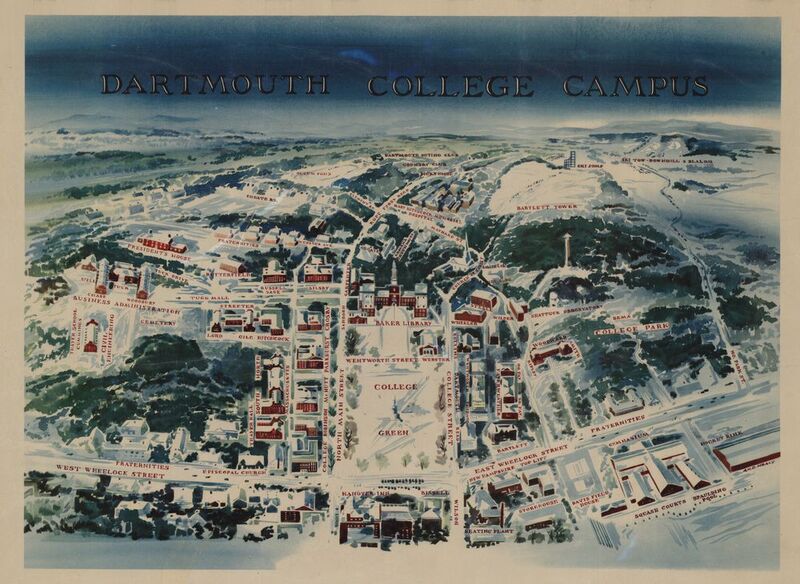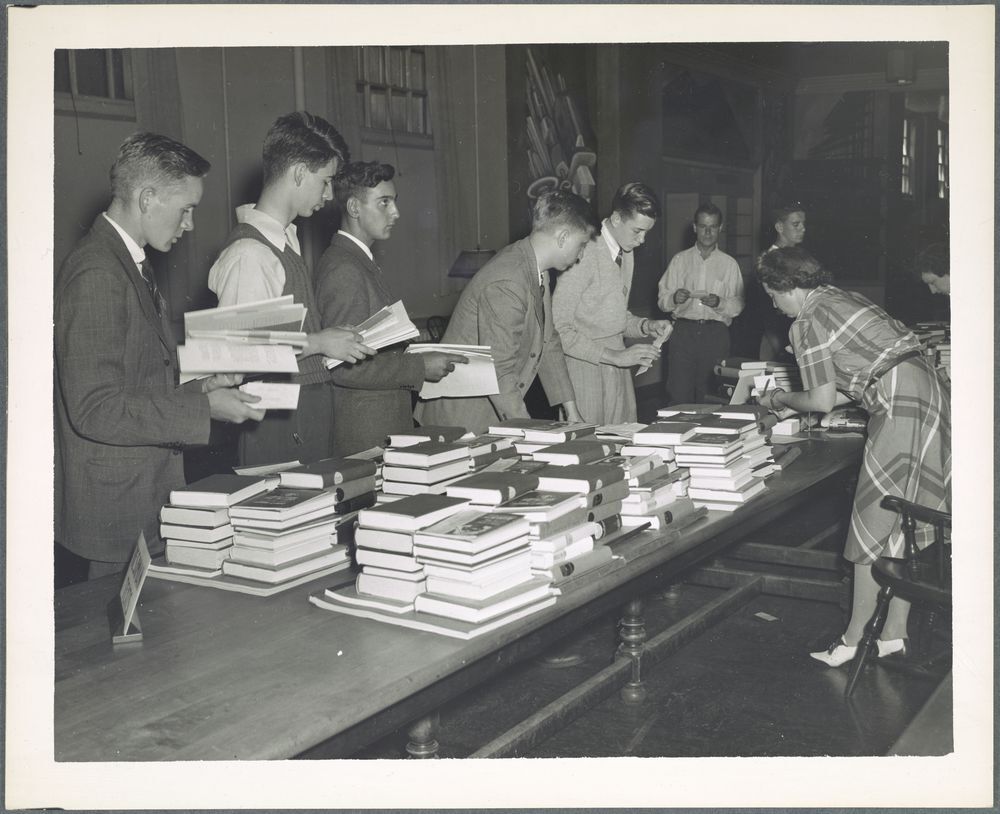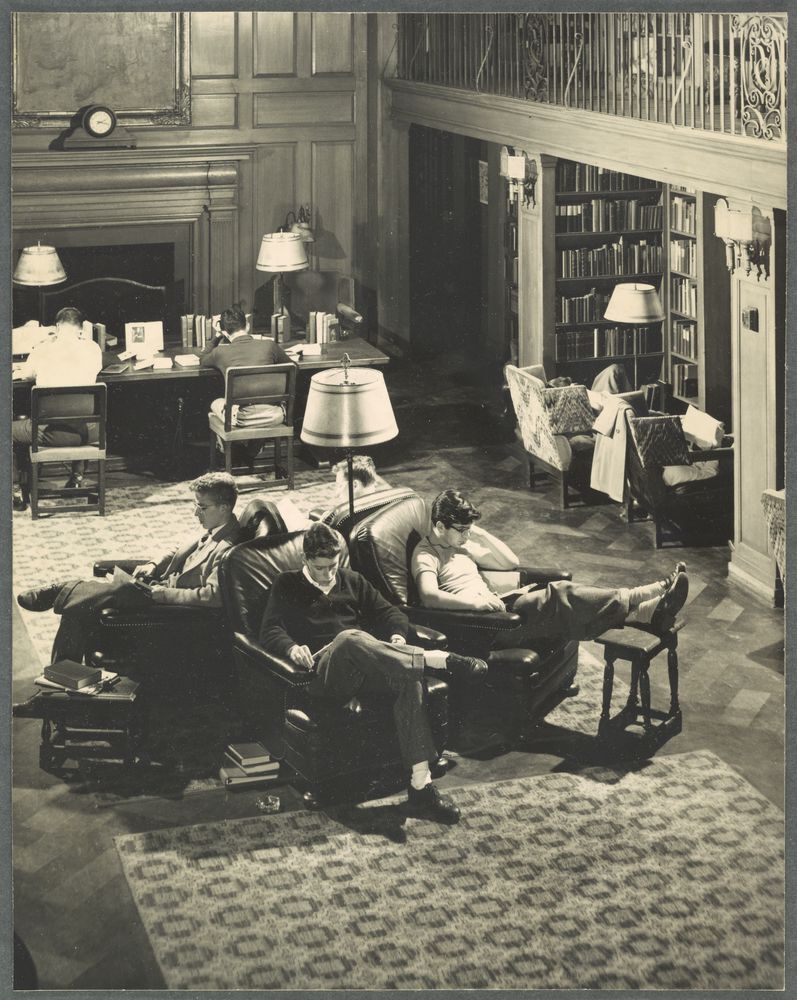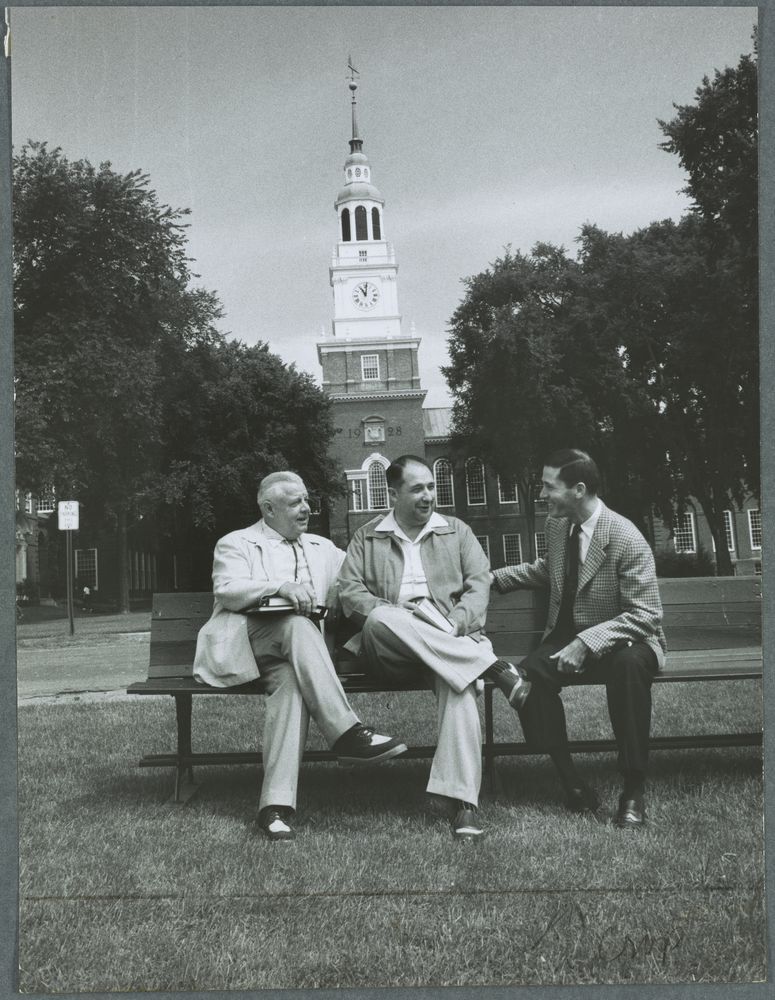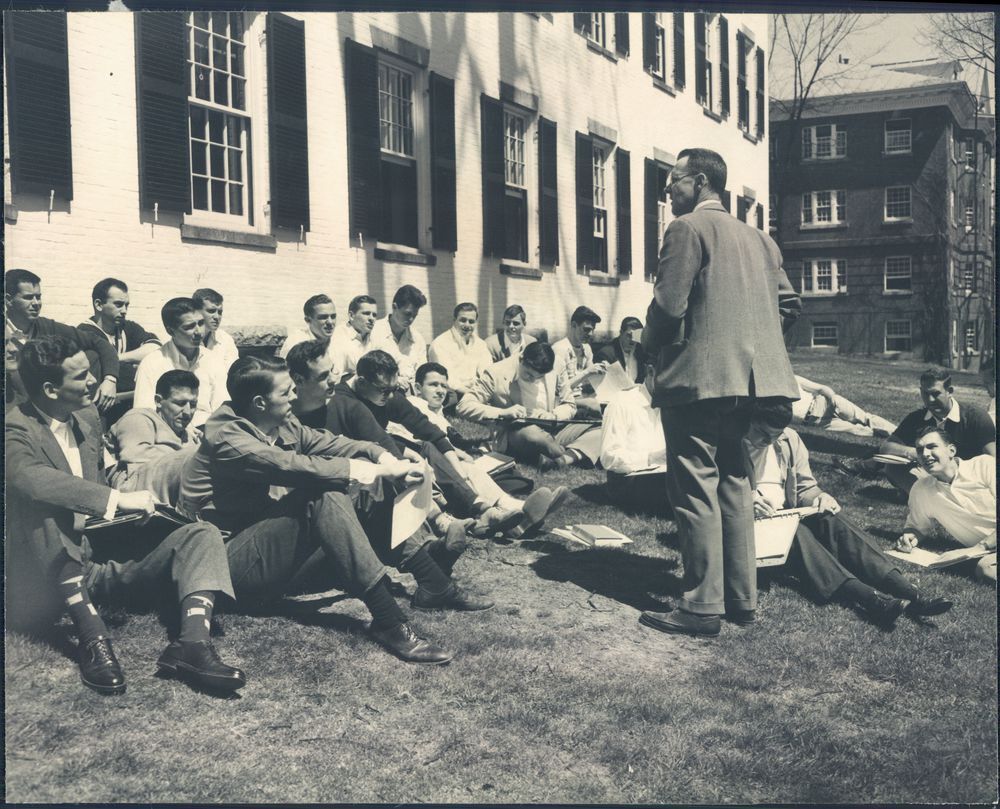The Shock of the New, 1919-1968
War greatly changed Dartmouth in the twentieth century. The repercussions from global conflicts challenged and changed the College and American higher education. Faculty and students alike, in concert or clash, recast curriculum and the place of the liberal arts. Those beyond the campus looked to Dartmouth and liberal education to prepare America’s youth for new thinking in the face of present and future challenges. A vision of a broad undergraduate education as preparation for working with knowledge, information, and ideas began to take hold at Dartmouth College and served as a model for others while democratic impulses evident throughout twentieth-century American higher education intensified.
Previous: Liberal Education in an Age of Innovations -- Next: Richmond Lattimore, Translation, and the Democratization of the American University

